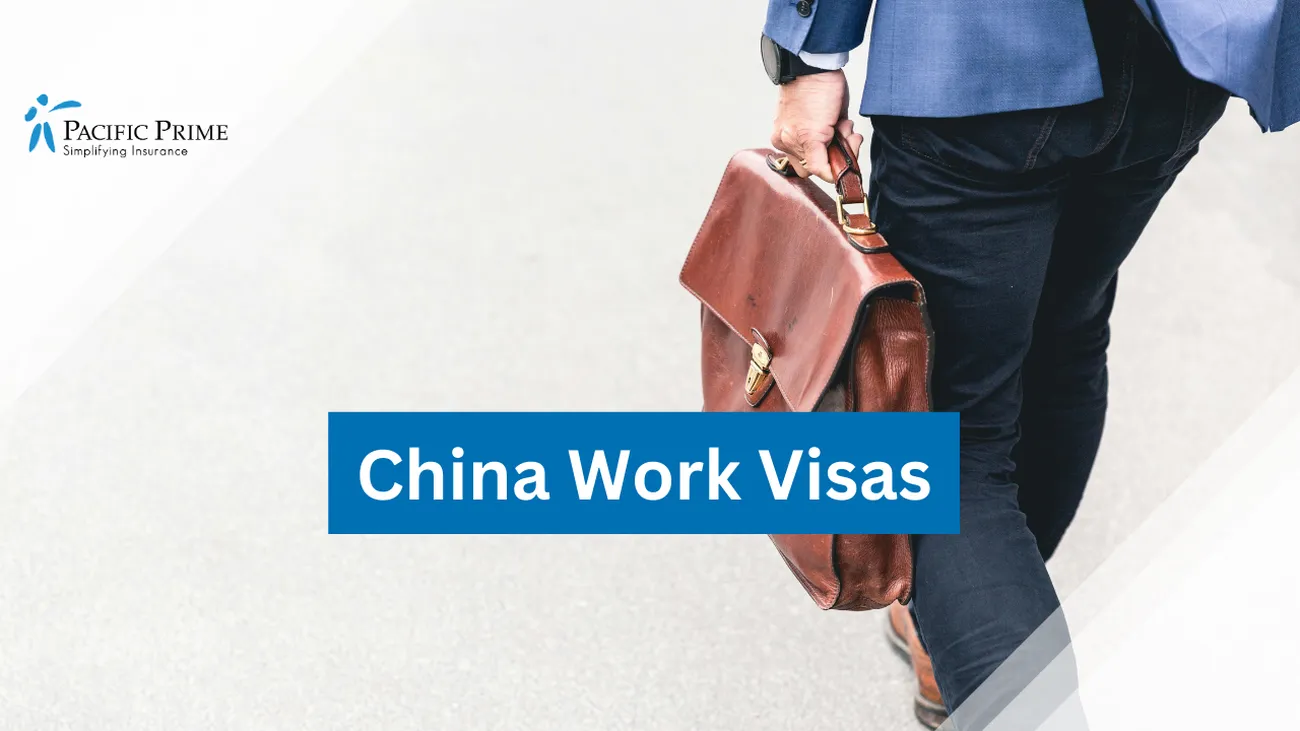Expats working abroad: Current and future trends
So many expats are working abroad these days, but why? InterNations’ Expat Insider 2021 survey results found that almost half of working expats (47%) relocated to another country with their careers in mind. Employers were responsible for sending 13% of them abroad while 15% were recruited internationally. The majority (17%) found a job opportunity on their own. Additionally, 2% relocated to build their own business.
Discover the world's top
health insurers.
Compare quotes with
a click of the button.
What lies ahead for expats working abroad is the main focus of the latest survey from InterNations, a global expat community with over 4 million members. This Pacific Prime article takes a closer look at current and future trends for expats working abroad based on the survey’s findings.
Well-educated expats make up the majority
The average age of expats working abroad is 43 years old. 53% are male and 46% are female. They are generally well educated, with 80% holding either a bachelor’s degree (33%) or a postgraduate/master’s degree (47%). An additional 8% hold a Ph.D. and 5% have commercial/technical/vocational training qualifications. Only 5% have just a high school diploma and 1% have no degree or qualifications.
In regards to current employment, senior/specialist positions contribute to 30% of the working expats surveyed. Lower/middle management comes next (17%), followed by top managers/executives (13%). 11% of expats working abroad are self-employed or working freelance. Similarly, 9% are in education (e.g. teachers and professors), and 7% are either entrepreneurs or work in entry-level jobs.
The most common fields expat work in are education, IT, and finance
Education (12%), IT (11%), and finance (8%) are the most common fields of work for expats. Other fields of work that are often mentioned include:
- Manufacturing and engineering (7%)
- Healthcare (6%)
- Advertising, marketing, and communication (5%)
33% of working expats have a gross yearly income between USD $50,000 and USD $100,000. Likewise, 44% make USD $50,000 or less while 23% make over USD $100,000.
Better work-life balance and lower working hours
82% of expat work full time, which is four percentage points less than 2015 (86%). The differences in the way expats work are also clearer.
In 2015, 42 hours was the average number of working hours per week for part- and full-time workers combined. The average now stands at 39.9 hours in 2021, which appears to contribute to personal satisfaction. The majority of working expats (70%) are satisfied with their working hours in 2021 (six percentage points more than in 2015). Work-life balance also increased five percentage points to 68%, versus 63% in 2015.
Despite an increase in working hours and work-life balance satisfaction since 2015, expats are not as happy about their local career opportunities. 49% of working expats in 2021 are satisfied with this factor in comparison to 60% in 2015. Conversely, 67% say they are happy with job security in 2021 – an increase of seven percentage points from 2015 (60%). Overall job satisfaction has also increased by five percentage points (73%) since 2015 (68%).
Remote working abroad is growing
In 2021, 78% of working expats are able to work remotely. But while 62% express their ability to work remotely, 16% add that they tend to prefer not to even though they can. Due to their job nature, an additional 16% cannot perform their tasks remotely. Just 6% cannot work remotely because of their employer. 65% of those working remotely abroad enjoy it, with 28% who like “very much” and only 3% who don’t like it “at all”.
39% of working expats work fully remotely while 18% work remotely for over 15 days per month, followed by:
- Two to five days (14%)
- One day or less (12%)
- Six to ten days (10%)
Remote working policies for expat employees have been affected by the COVID-19 pandemic, with 28% now able to work remotely more regularly than before. Remote work is a new introduction for an additional 20% and one that is set to stay. 26% have not seen any long-term changes to their employer’s remote work policies. Likewise, around one quarter (26%) don’t know what their employer will do once the pandemic is over.
Which countries value New Work the most?
Remote working is an aspect of New Work that many expats are already familiar with. New Work is a concept that describes the modern way of working in the digital and global age. The factors that many expats (58%) value in their host country’s business culture are closely related to New Work, including:
- Autonomy
- Creativity
- Freedom
- Personal development
- Self-fulfillment
Working expats in the following ten countries say that New Work plays an integral role in the local business culture, in no particular order.
- The US
- The UAE
- The Netherlands
- Estonia
- Finland
- Bahrain
- Sweden
- Australia
- Canada
- New Zealand
Almost half (49%) of working expats say that New Work is more vital to their host country’s business culture than in their home country. Working expats in the following host countries express the largest difference in importance versus their home country:
- Mexico (74%)
- The Philippines (65%)
- Turkey (61%)
- India (60%)
- Italy (59%)
As a matter of fact, the importance of New Work in the local business culture back home tends to not rank well according to other expats’ ratings. Mexico ranks the highest out of the aforementioned five countries, coming in at 33 out of 55. Ten countries that believe New Work is not important in the local business culture include Japan (55th), China (46th), Turkey, India, Italy, Kuwait, Spain, South Korea, Egypt, and France.
What expats currently appreciate and hope for the future
What working expats like most about their current job include:
- Being able to work remotely abroad/from home (32%)
- Good work-life balance (32%)
- Flexible working hours (29%)
In an ideal work environment, expats consider the following three aspects to be vital:
- Good compensation/benefits (54%)
- Good work-life balance (49%)
- Creative/interesting tasks (29%)
At present, only 28% are satisfied with their compensation/benefits, and just 21% benefit from creative/interesting tasks. Expats are even seemingly willing to trade factors they currently appreciate, with factors like working remotely/from home and flexible working hours not making it into the top three characteristics of an ideal work environment.
How Pacific Prime can help
With a better understanding of current and future trends, you can evaluate your employee benefits plan for expat employees and make informed changes. As an employee benefits specialist and insurance broker, we at Pacific Prime know how difficult it can be to get your plan just right. That’s why our clients turn to us whenever they need help finding, securing, and managing comprehensive employee benefits and company health insurance solutions.
Whether you’re looking for corporate health insurance, expat health insurance, or more, contact us to set up a free consultation today.
- Diversity, Equity, and Inclusion in the Workplace - February 29, 2024
- Is It Cheaper To Live In Dubai Or The United States? - September 28, 2023
- The Best Thailand Holiday Insurance - September 27, 2023








Comments
Leave a Comment